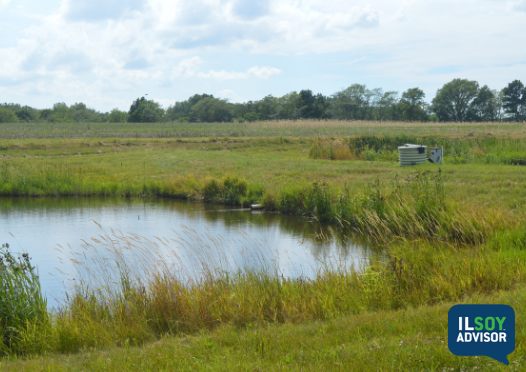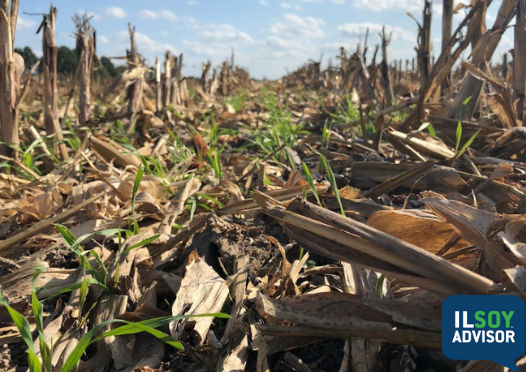ILSOYADVISOR POST
SHOWCASE FARMER: Kevin Aves
The farmer. Kevin Aves farms about 2,200 acres of corn, soybeans and wheat between DeKalb and Rockford. Aves’ land was cleared in the late 1800s, and waterways and small patches of trees still dot the countryside.
Aves says his family has grown wheat as long as he can remember. “We’ve always had a good market for straw over the years, mostly to local farmers, but as livestock numbers dwindled away, we’ve had a lot of it go to racetracks in Chicago and to landscapers who do work along the highways.”
Wheat production is unusual in Aves’ area because of harsh winters and he estimates that only 3,000 to 4,000 acres are grown in the entire county. But growing wheat is a solid business decision for Aves because it helps break up labor demands. “We’re busy in the summer combining wheat and baling straw, and that helps spread the load between my dad, my brother and myself,” he says.
“We don’t double-crop soybeans—we’ve only had limited success with that. With our wheat, we’re trying to get it harvested and the straw baled, and the timing to do double-crop beans never worked out well.”
Aves also works with AgReliant Genetics to raise foundation corn, which relies on the wheat for isolation distance—the minimum separation between two or more varieties of the same species to keep seed pure.
Environmental challenge. The Aves acreage is primarily on timber soil, with gently rolling hills. He estimates that 10 to 15 percent of the land is rated Highly Erodible Land, or HEL. “We don’t have a lot of that flat, black soil that is more common south of DeKalb.”
Best Management Practices. Aves has used cover crops including tillage radish, crimson clover and red clover. Aves started with cover crops because he felt they were a good choice on lower organic matter timber soils, which have high clay content and can get compacted. “We’re hoping the tillage radishes can help bring that back and also help to bring nutrients back up to the top of the soil profile.”
Aves says the family has used no-till since the late 1980s, partially to save on labor, but also to conserve the soil and cut back on all the tillage trips across the field. They feel they’ve found a successful approach to tillage. “Our yields are as good as our neighbors’ and our yields are better than the county average on the timber soils, so we feel like we’re relatively successful.”
In addition, Aves planted filter strips along creeks and a buffer strip along the Kishwaukee River, as part of their plan for the Conservation Stewardship Program (CSP.)
Investing in answers. Despite their advances in sustainable farming practices, Aves doesn’t consider his family’s operation cutting edge. “We’re not going to blaze trails in new areas. But if we see something that looks like it might work and we can collect some information and talk with someone we trust, we will try new things,” he says. “We don’t mind spending money to try and learn something.”
He also believes in gathering information to make agronomic decisions. “We’ve been working with a crop scouting service for 30 years and we count on them to help us keep on top of what we need,” Aves says.
Sustainable focus for 2015. Aves plans to use some ESN, a slow-release nitrogen fertilizer, in combination with the fields he had in cover crops last year. He says that his family is committed to applying proper amounts of N, as well as the required stabilizer. These practices are designed to prevent nitrogen loss due to heavy rainfall.





Comments
Add new comment